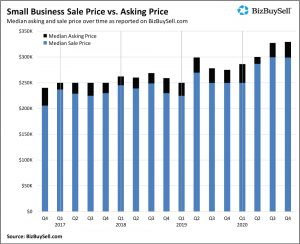A business changing hands is a big deal. One side is selling their blood, sweat and tears. The other is writing a very big check and stepping into the unknown. It can be scary. Really scary.
What happens more often than not is one or both sides start to panic as the closing date approaches – and when that happens tempers can flare and perfectly good deals can fall apart.
How do you avoid a pre-closing disaster? Know that it’s coming and mentally prepare.
Sellers:
If you are selling your business, it can be difficult to remain objective and unoffended when a buyer gets antsy and starts questioning everything about your business. We get that. Repeat questions, constant requests for renegotiation, attempts to lower the offer, demands for new issues that have already been dealt with and the like would make anyone angry – even angry enough to pull out of the deal.
What you should know going in is these things are probably going to happen. There are very few buyers who don’t get cold feet as the contract winds towards closing, and those cold feet can cause a buyer to do some pretty weird things. They are going to try to find a way to back out of the deal – not because they really want to, but because their nerves got the better of them.
Whatever your buyer is doing or demanding at the end, take a step back and think about where the panic behavior is coming from. Are they just freaking out? Have they really found an insurmountable issue with your business, or are they trying to give themselves a reason to back out because they’re scared? You don’t have to bend to their every demand, but you do need to have some patience and be ready for this inevitable last-minute buyer anxiety.
Buyers:
If you are a buyer, know going in that you are probably going to be really nervous – increasingly so as the date for writing that big check approaches.
You are absolutely entitled to all of the information you need before you sign on the dotted line and buy a business – that’s what the due diligence period is for. You need to utilize that time for due diligence to go through all of the information you request, ask good questions, discuss any issues you uncover with your business broker, your spouse, your transaction attorney, etc. and make an educated decision based on all of that information. Once you’ve made that decision – don’t second guess yourself.
Feeling anxious about a big decision is totally normal – letting that anxiety override an educated decision is far from productive. If you are days away from closing and are feeling like you’re making a mistake – go back and talk to the people you talked to during the due diligence process, like your business broker, your spouse and your transaction attorney. Go over your worries and work through why you are suddenly feeling like you don’t want to go through with the deal. It is nerves, or is it really an insurmountable problem? If you’ve made it all the way through due diligence without finding a deal-killing problem, it’s probably just nerves. Don’t talk yourself out of a great new opportunity.
The message? It’s the last minute panic that causes the issues. Big decisions might feel like they require a big leap of faith – but the reality is the decisions you’ve made during your business transaction have been made based on facts, no leap of faith was required. Trust your gut, be patient with the other side and remember that nerves can only cause issues if you let them.
Do you have questions about how to deal with a panicking buyer? Would you like to know more about how due diligence works? Ask us! Leave any questions or comments and we would be happy to help.
Michael Monnot
941.518.7138
Mike@InfinityBusinessBrokers.com
5111 Ocean Boulevard, Suite E
Siesta Key, FL 34242
www.InfinityBusinessBrokers.com












